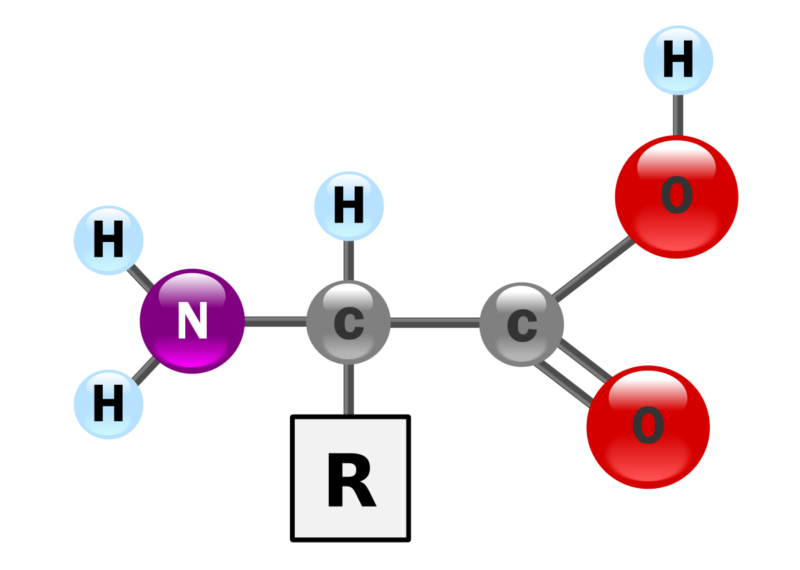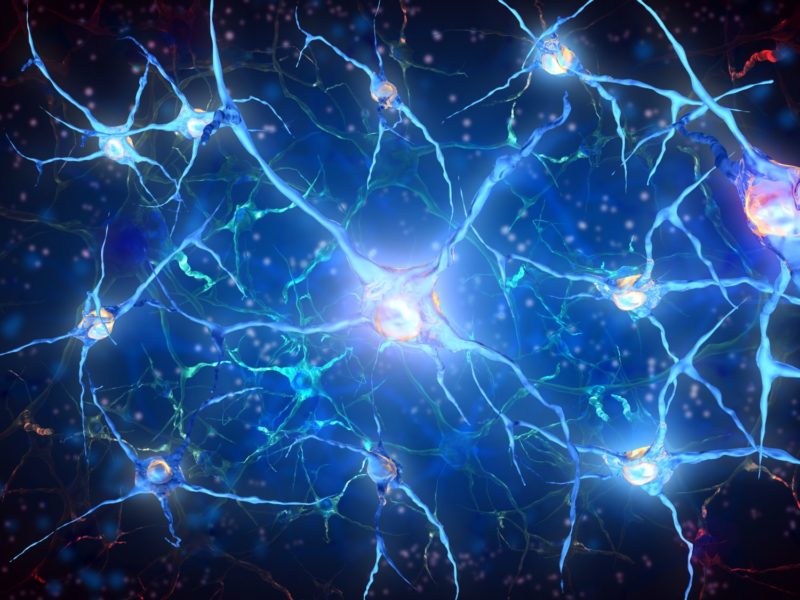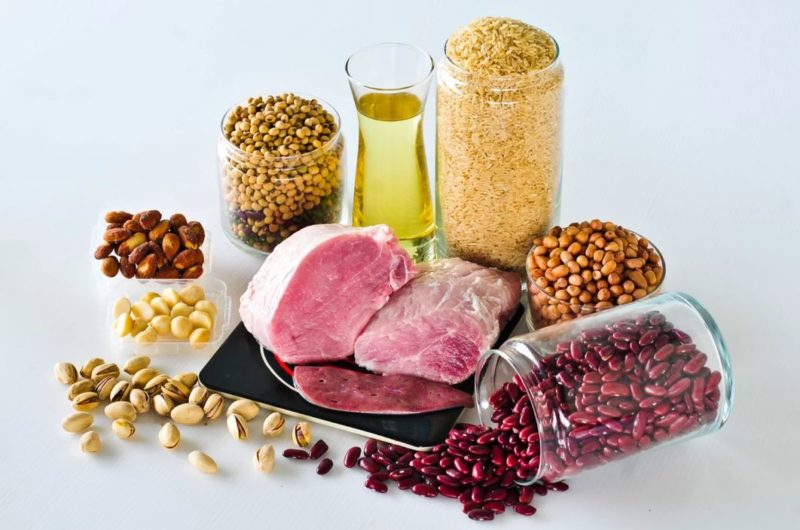Vitamin B1 is a water soluble vitamin that readily enters and exits the body daily so it must be taken internally on a daily basis. Vitamin B1 is a crystalline, yellow-white, water-soluble compound that is heat and alkali reactive when placed in solution. Thiamin helps maintain a normal metabolism and helps burn carbohydrates. Vitamin B1 is found in most whole grains. Vitamin B1 is a group of water-soluble vitamins that participates in many of the chemical reactions in the body. It is also called thiamine, thiamin and aneurin. Thiamin, in the form of thiamin pyrophosphate, plays an essential role as a cofactor in key reactions in carbohydrate metabolism. It is also involved in the metabolism of branched-chain amino acids and may have non-coenzyme (non-cofactor) roles in excitable cells.
Vitamin B1 is essential for the body to be able to use carbohydrate as an energy source as well as for metabolising amino acids. A person’s requirements for vitamin B1 are increased when they are relying heavily on carbohydrates for their main source of energy. In humans, thiamin can be synthesized in the large intestine as thiamin pyrophosphate (TPP). The main circulating form of vitamin B1 is thiamine diphosphate (TDP) which is found almost completely in red blood cells. TPP is too large a molecule to be absorbed across the intestinal mucosa. It requires the use of an enzyme to cleave the smaller thiamin molecule out of the compound. TDP is a cofactor for several enzymes – pyruvate dehydrogenase and transketolase (activity is sometimes measured as an indicator of vitamin B1 deficiency) and thiamine triphosphate is thought to be important in nerve conduction.

Img Source: wikipedia.org
Vitamin B1 is needed to process carbohydrates, fat, and protein. Every cell of the body requires vitamin B1 to form the fuel the body runs on – ATP. Nerve cells require vitamin B1 in order to function normally. Vitamin B1 (thiamine) assists in blood formation, carbohydrate metabolism, and the production of hydrochloric acid, which is important for proper digestion. Vitamin B1 (thiamine) also enhances circulation and optimizes cognitive activity and brain function. Vitamin B1 (thiamine) has a positive effect on energy, growth, normal appetite, and learning capacity, and is needed for muscle tone of the intestines, stomach, and heart. Vitamin B1 acts as an antioxidant, protecting the body from generative effects of aging, alcohol consumption, and smoking. May improve glucose tolerance and retard arterial blockages, especially in diabetics.
Thiamin is available in nutritional supplements in the form of thiamin hydrochloride and thiamin nitrate. These are also the forms used for food fortification. Thiamin pyrophosphate or cocarboxylase may also be available in some products. Vitamin B1 is the first part which is separated from the rest of the complex. Thiamine helps prevent beriberi. Although this vitamin can now be synthetically prepared, it can be found in Liver, port, yeast, nuts, and some grains. An average adult requires 2 to 3 grams of vitamin B1. Breads, flour and cereals are now enriched with thiamine so there is no longer a worry of deficient Vitamin B1 intake, which would cause beriberi. The highest concentrations of vitamin B1 are found in muscle, heart, liver, kidneys, and brain. Thiamin can be found in food as free form, thiamin pyrophospate (TPP) and as a protein phosphate complex.

Img Source: wikipedia.org
Vitamin B1 (thiamine, thiamin) functions, uses, and health benefits
Thiamine works with the other B vitamins to change protein, carbohydrate, and fat to energy. It is especially vital for changing carbohydrates to energy. It is a key factor in the healthy functioning of all the body’s cells, especially the nerves. Vitamin B1 helps the body cells convert carbohydrates into energy. It is also essential for the functioning of the heart, muscles, and nervous system. As a coenzyme, thiamin plays a key role in energy production, conversion of glucose to fat. Every cell of the body requires vitamin B1 to form the fuel the body runs on – ATP. Nerve cells require vitamin B1 in order to function normally.

Img Source: blog.cirm.ca.gov
The active form, TPP, functions as a co-carboxylase. It is required for the oxidative decarboxylation of pyruvate to form active acetate and acetyl co-enzyme A. It is also required for the oxidative decarboxylation of other alpha-keto acids such as alpha-ketoglutaric acid and the 2 keto-carboxylates derived from the amino acids methionine, threonine, leucine, isoleucine and valine. TPP is also involved as a co-enzyme for the transketolase reaction, which functions for the pentose monophosphate shunt pathway. TPP has a specific role in neurophysiology separate from its co-enzyme function. It works at the nerve cell membrane to allow displacement so that sodium ions can freely cross the membrane. Thiamin is needed for the metabolism of carbohydrates, fat, and protein. It is especially involved in carbohydrate metabolism in the brain.
Thiamin has an important function in nerve membranes and in nerve conduction, although the mechanism is unclear. Thiamin pyrophosphate (TPP) has a specific role in neurophysiology separate from its co-enzyme function. It works at the nerve cell membrane to allow displacement so that sodium ions can freely cross the membrane. Thiamin is needed for the metabolism of carbohydrates, fat, and protein. It is especially involved in carbohydrate metabolism in the brain. Thiamin may be used to support nerve health, and minimize numbness and tingling, helping to protect against this condition. Thiamine aids the nervous system and is essential for the functioning of important enzymes. These enzymes have vital roles in the processes that make energy available in the body. Thiamine is essential for the transmission of certain types of nerve signal between the brain and the spinal cord. Depression, poor memory, muscle weakness and stiffness, nerve tingling, burning sensation and numbness, tiredness, headache, loss of appetite and nausea are some of the symptoms and signs of its deficiency.

Img Source: indy100.com
Supplemental thiamin can help protect against some of the metabolic imbalances caused by heavy alcohol consumption. It may help protect against Wernicke’s encephalopathy and some other forms of brain damage seen in some alcoholics, some with HIV-disease, some with anorexia nervosa and others. It may be helpful in alcohol withdrawal. It is needed in those who receive total parenteral nutrition, particularly to prevent lactic acidosis due to thiamin deficiency. It may increase glucose tolerance and may help prevent atherosclerosis, particularly in diabetics. It has been used in congestive heart failure with benefit under certain circumstances and may be helpful in some other forms of heart disease. There is preliminary evidence that it can improve mood and cognition in some.
Vitamin B1 (thiamine, thiamin) dosage, intake, recommended daily allowance (RDA)
Daily needs for thiamine are based on the amount of calories taken in each day. The recommended dietary intake (RDI) for Vitamin B1 is 1.1 mg per day for adult males and 0.8 mg per day for adult females, although women that are pregnant require an additional 0.2 mg per day and those that are lactating require and additional 0.4 mg. To correct deficiency, larger daily doses are given, sometimes using intramuscular injections. Like all B Vitamins, it is recommended that Vitamin B1 be taken as part of a complete B Complex supplement to ensure the correct balance of B Vitamins is maintained in the body. Thiamin is typically found in the form of multivitamin, multivitamin/multimineral or B-complex preparations. Single ingredient thiamin supplements are also available. Pre- and postnatal supplements typically deliver a thiamin dose of 3 milligrams daily.

Img Source: deadseamoringa.com
Sources of vitamin B1 (thiamine, thiamin)
Thiamine (vitamin B1) is found in fortified breads, cereals, pasta, whole grains (especially wheat germ), lean meats (especially pork), fish, dried beans, peas, and soybeans. Good sources of thiamine include wheat germ, dry beans, peas, enriched cereals and breads, pasta, nuts, eggs, and most vegetables. Dairy products and milk, fruits, and vegetables are not very high in thiamine, but when consumed in a large amounts they become a significant source. The richest food sources of vitamin B1 are brewer’s or nutritional yeast, brown rice, egg yolks, fish, legumes, liver, nuts, peas, poultry, rice bran, dulse, kelp, spirulina, wheat germ and whole grains. A high carbohydrate diet will increase the need for thiamin and the use of antibiotics, sulfa drugs, and oral contraceptives may decrease the body’s thiamin level.

Img Source: livescience.com
Vitamin B1 (thiamine, thiamin) deficiency
Thiamin deficiency occurs as a result of many factors, including crash dieting, alcohol abuse, liver disfunction, kidney dialysis, and sustained periods of IV nutrients. Also at risk are those who consume a lot of sweets, soft drinks, and highly processed foods. A lack of sufficient thiamine in the diet can cause loss of appetite, poor digestion, chronic constipation, loss of weight, mental depression, nervous exhaustion, and insomnia. It can lead to muscular weakness, leg cramps, slow heartbeat, irritability, defective hydrochloric acid production in the stomach and consequent digestive disorders. In case of insufficient supply of thiamine in the body, the heart muscles become lazy and fatigued, and the auricles or the upper chambers of the heart lose their strength and gradually enlarge. Vitamin B1 deficiency is common among alcoholics, as chronic alcohol consumption decreases the amount of Vitamin B1 absorbed by the body. Alcohol not only blocks thiamin assimilation but injures the small intestine, making nutrient absorption in general very difficult. There are two major manifestations of thiamine deficiency: cardiovascular disease (wet beriberi) and nervous system disease (“dry beriberi” and Wernicke-Korsakoff syndrome). Both types are most often caused by excessive alcohol consumption.

Img Source: medicalnewstoday.com
Vitamin B1 (thiamine, thiamin) overdose, toxicity, side effects
Thiamin (vitamin B1) is a water-soluble vitamin and as such, it is least likely to reach toxic levels. There is little danger of thiamin toxicity when it is taken orally. However, there is an exception. When thiamin is taken intravenously (injections), it has been reported to cause anaphylactic shock in few people. Symptoms of a thiamine overdose may include a feeling of warmth, weakness, sweating, nausea, restlessness, difficulty breathing, tightness of the throat, bluish colored skin, and death.

